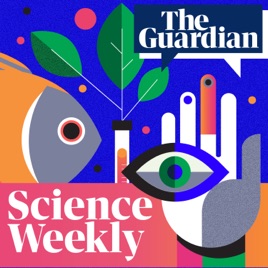
Advertise on podcast: Science Weekly
Rating
4.3 from
Categories
Country
This podcast has
465 episodes
Language
Publisher
Explicit
No
Date created
2006/03/27
Average duration
17 min.
Release period
4 days
Description
Twice a week, the Guardian brings you the latest science and environment news
Social media
Check Science Weekly social media presence
Podcast episodes
Check latest episodes from Science Weekly podcast
Mistakes, fakes, and a giant rat penis: why are so many science papers being retracted?
2024/02/22
A record 10,000 research papers were retracted in 2023. To find out what’s driving this trend, Ian Sample speaks to Ivan Oransky, whose organisation Retraction Watch has been monitoring the growing numbers of retractions for more than a decade, and hears from blogger Sholto David, who recently made headlines when he spotted mistakes in research from a leading US cancer institute.. Help support our independent journalism at theguardian.com/sciencepod
more
Nitazenes and xylazine: what’s behind the rise of dangerous synthetic drugs?
2024/02/20
Social affairs correspondent Robert Booth tells Madeleine Finlay why a class of synthetic opioids called nitazenes, first developed in the 1950s, is leading to a worrying number of fatal overdoses in the UK. And she hears from toxicology and addiction specialist Dr Joseph D’Orazio about a tranquilliser called xylazine that has been showing up in alarming volumes in the US illegal drug supply and is now starting to appear in toxicology reports in the UK. Help support our independent journalism at theguardian.com/sciencepod
more
What apes can tell us about the origins of teasing
2024/02/15
We all know people who find it hilarious to prod and poke, pinch and tickle, all in the name of fun. But are humans the only ones who like to tease each other? Or are other animals in on the act? Ian Sample talks to Prof Erica Cartmill about her work on apes and teasing and asks, given how annoying teasing is, why do apes, and humans, do it?. Help support our independent journalism at theguardian.com/sciencepod
more
Retinol, acids and serums for kids? A dermatologist’s guide to age appropriate skincare
2024/02/13
Last month the British Association of Dermatologists warned that children as young as eight years old were using potentially damaging anti-ageing skin care products. Madeleine Finlay speaks to consultant dermatologist Dr Emma Wedgeworth about where this trend has come from, what damage these products might be causing to young skin and how we can all look after our skin without spending too much time and money. Help support our independent journalism at theguardian.com/sciencepod
more
Why are we still waiting for a male contraceptive pill?
2024/02/08
Despite research into a male contraceptive pill starting around the same time as its female counterpart, no product has ever made it to market. But that could soon change, with a new non-hormonal male pill entering human trials in the UK late last year. Ian Sample speaks to bioethicist Prof Lisa Campo-Engelstein of the University of Texas and Prof Chris Barratt from the University of Dundee about why male contraceptives have been so difficult to develop, and what kind of options are in the pipeline. Help support our independent journalism at theguardian.com/sciencepod
more
What happens now bird flu has reached the Antarctic?
2024/02/06
The moment scientists had been dreading arrived late last year, when H5N1, or bird flu, was found for the first time in the Antarctic. Last week a king penguin on the island of South Georgia became the first in the region to be suspected to have died from the disease. The Guardian’s biodiversity reporter, Phoebe Weston, tells Ian Sample why researchers have said the spread of bird flu through the Antarctic’s penguin colonies could signal ‘one of the largest ecological disasters of modern times’. Help support our independent journalism at theguardian.com/sciencepod
more
A fasting prime minister and a mind-reading billionaire: the week in science
2024/02/01
Ian Sample and science correspondent Hannah Devlin discuss the big science stories of the week – from news that Elon Musk’s Neuralink has implanted its first chip into a human, to research suggesting Alzheimer’s can pass between humans in rare medical accidents, and the revelation that Rishi Sunak begins each week with a 36-hour fast. Help support our independent journalism at theguardian.com/sciencepod
more
Secrets of the microbiome: the skin
2024/01/30
The trillions of microbes living on and inside the human body are an important part of who we are, from mediating all of our interactions with the environment to determining our cancer risk and influencing who we fall for. And scientists are only just beginning to decipher the species of bugs we share our lives with, and how they shape us. In the final part of this Science Weekly mini-series, Ian Sample meets Julie Thornton, academic director of the Centre for Skin Sciences and professor in cutaneous biology at the university of Bradford. Julie tells Ian how the skin microbiome varies across our bodies, how it helps with everything from wound healing to immunity, and how we can protect it from the disruptive impact of modern life.. Help support our independent journalism at theguardian.com/sciencepod
more
Secrets of the microbiome: the vagina
2024/01/25
The trillions of microbes living on and inside the human body are an important part of who we are, from mediating all our interactions with the environment to determining our cancer risk and influencing who we fall for. And scientists are only just beginning to decipher the species of bug we share our lives with, and how they shape us. In the second of a three-part Science Weekly mini-series, Madeleine Finlay meets Ina Schuppe Koistinen, associate professor at the Karolinska Institutet in Stockholm, and author of the book Vulva: Facts, Myths and Life-Changing Insights. Ina explains what makes the vaginal microbiome special, why it could hold the key to understanding pregnancy complications, and how we can better care for and protect it.. Help support our independent journalism at theguardian.com/sciencepod
more
Secrets of the microbiome: the gut
2024/01/23
The trillions of microbes living on and inside the human body are an important part of who we are, from mediating all of our interactions with the environment to determining our cancer risk and influencing who we fall for. And scientists are only just beginning to decipher the species of bugs we share our lives with, and how they shape us. In the first of a Science Weekly three-part mini-series, Ian Sample speaks to colorectal surgeon and researcher, James Kinross, about the miraculous world of our gut microbiome, how modern life is impacting it, and what we can do to look after it. Help support our independent journalism at theguardian.com/sciencepod
more
How to stop doomscrolling and reclaim your brain
2024/01/18
If you’ve made a resolution to spend less time on your phone this year, help is at hand. The Guardian has launched a new newsletter, Reclaim your brain. Its co-writer and expert coach Catherine Price tells Madeleine Finlay how her own excessive phone use inspired her to investigate the science behind our relationships with our devices, and what we know about how to break the cycle. And Prof Barbara Sahakian of Cambridge University explains why many of us are drawn to looking at bad news on our phones, and what it’s doing to us. Help support our independent journalism at theguardian.com/sciencepod
more
Is guilt-free flying on the horizon?
2024/01/16
In November, a plane powered by 100% ‘sustainable’ jet fuel took off from London to New York. It was hailed by some as a milestone in reducing the carbon footprint of air travel, which accounts for about 2.5% of global CO2 emissions. Could this be the start of a greener way to fly? Madeleine Finlay speaks to Guy Gratton, associate professor of aviation and the environment at Cranfield University, to find out if the future of aviation can ever truly be guilt-free.. Help support our independent journalism at theguardian.com/sciencepod
more
Podcast reviews
Read Science Weekly podcast reviews
Rsemeemoo
2022/12/16
Inspirational
All of the hosts are brilliant
*Mr. Joshua*
2023/07/06
A Missed Opportunity for Engagement
My experience with this podcast was far from satisfactory. It lacked the key elements necessary for an engaging and memorable listening journey. Regre...
more
moving on-missu
2022/06/14
Learn here
SCIFRI science Friday was a go to but they became political and now lacks real discussion and learning. This program well worth your time.
JA1805
2022/10/28
Where’s the science?
I’ve been listening to Science Weekly for a long time. It started going downhill after Alok Jha left the show. It has interesting episodes every now a...
more
Minkette6
2022/09/27
Science-lite
Pretty basic and too often lacking in depth. It’s not a bad source for the latest conservation/environmentalism news, but expect overviews rather than...
more
ArlieLP
2021/10/05
Science Weekly rules!
Science Weekly is one of my faves! I’ve learned so much from the show, and I’m always impressed by the depth and breadth of knowledge of the hosts and...
more
Sir_Prometheus.
2022/03/08
Whole episode about politics, no science.
1) if you label yourself a science show, don’t talk about Russian - Ukrainian info wars. No pretext of science at all
2) DEFINITELY don’t be a buncha...
more
A BTCC VICTIM
2022/02/07
Political puppet
I understand scientists need government funding to live, but at least don’t give up the principles of science. Invest the problem please! Not tell the...
more
Stacee Nicole
2020/11/17
I’m just here for the science 🥰
I’m just here for the science. It may be hard for others to appreciate anything science related these days but not me. That’s all.
+estevez+
2021/07/13
Subscribed for 5 years. Covid commentary was poor. Unsubscribing.
Subscribed for 5 years. This podcast used to be one of my favourites when it was about science and nature. Fantastic source for information.
Not only...
more
Podcast sponsorship advertising
Start advertising on Science Weekly & sponsor relevant audience podcasts
You may also like these science Podcasts

4.8
1260
234
Therapist Uncensored Podcast
Sue Marriott LCSW, CGP & Ann Kelley PhD
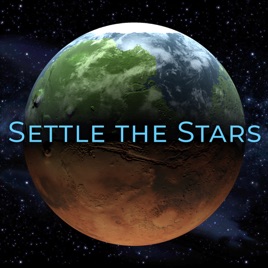
4.7
245
38
Settle the Stars: The Science of Space Exploration
Edgeworks Nebula
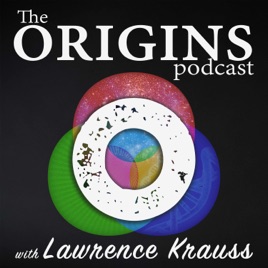
4.4
427
84
The Origins Podcast with Lawrence Krauss
Lawrence M. Krauss
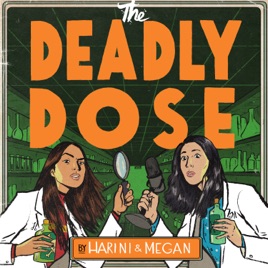
4.7
65
100
The Deadly Dose
Harini Bhat & Megan Gesner

4.7
2136
580
Daniel and Jorge Explain the Universe
iHeartPodcasts

4.1
56
100
Physics World Weekly Podcast
Physics World
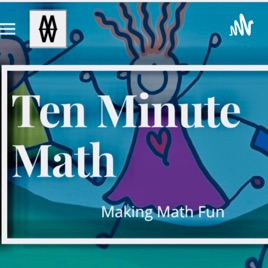
5
8
131
Ten Minute Math
Jan & Colleen
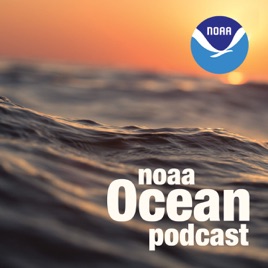
4.7
63
112
NOAA Ocean Podcast
National Ocean Service
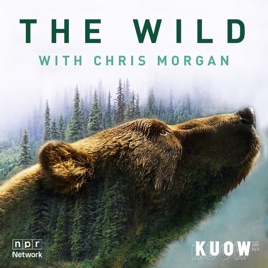
4.7
3016
87
The Wild with Chris Morgan
KUOW News and Information
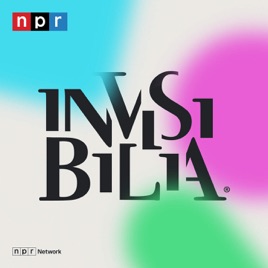
4.5
21516
84
Invisibilia
NPR



